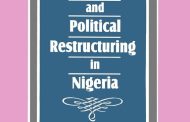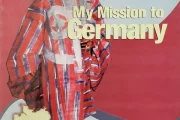 Visible actions of the federal authority to douse the anger and corrosive criticism that followed the latest round of herdsmen violence in Nigeria’s Benue State are producing noticeable divisions, policy stand-offs and stalemates. The most noticeable so far is the contestation around the policy of cattle colonies, the preference of the Federal Government being articulated by the Federal Ministry of Agriculture. While Kogi, Nasarawa and Plateau states have bought into that arrangement, Benue and Taraba states are on the same page in total rejection of any such colony. Meanwhile, Kwara and Niger states are silent. This emergent division is not lost on keen observers of Nigerian politics as all the states in question fall into the country’s extra-ordinarily heterogeneous Middle Belt geopolitical unit. Although, no region in Nigeria beyond the Southeast is that homogeneous, none has the identity complexity of Nigeria’s Middle Belt region, whether in terms of religion, ethnicity, linguistic composition and the native/settler fault lines.
Visible actions of the federal authority to douse the anger and corrosive criticism that followed the latest round of herdsmen violence in Nigeria’s Benue State are producing noticeable divisions, policy stand-offs and stalemates. The most noticeable so far is the contestation around the policy of cattle colonies, the preference of the Federal Government being articulated by the Federal Ministry of Agriculture. While Kogi, Nasarawa and Plateau states have bought into that arrangement, Benue and Taraba states are on the same page in total rejection of any such colony. Meanwhile, Kwara and Niger states are silent. This emergent division is not lost on keen observers of Nigerian politics as all the states in question fall into the country’s extra-ordinarily heterogeneous Middle Belt geopolitical unit. Although, no region in Nigeria beyond the Southeast is that homogeneous, none has the identity complexity of Nigeria’s Middle Belt region, whether in terms of religion, ethnicity, linguistic composition and the native/settler fault lines.
Religion has since become the most volatile spark in the region. The current division between those for and those against the policy of cattle colony acquires its own mystery from corresponding to almost no previous fault lines, although support for cattle colony could be interpreted to mean support for the Miyetti Allah platform posing the interests of cattle breeders. Other than that, this division doesn’t even follow a party divide. Benue and Taraba which are acting in league belong to two different political parties in Nigeria: Benue is controlled by the All Progressives Congress, (APC), the party which also controls the Federal Government while Taraba State is controlled by the People’s Democratic Party, (PDP). Kogi, Nasarawa and Plateau are APC states for now. Kwara and Niger states which are silent for now are all APC states.
It is not surprising to many observers that this division has overshadowed other puzzles about the latest Benue killing such as the fact that President Muhammadu Buhari is still assuring that the killers would be found. The question that is making the round is the possibility of that number of obviously trained operators entering a selected space, carrying out what they planned and successfully disappearing into thin airs without operatives of the Nigerian intelligence community anticipating, bursting the operation half way, not to talk of a hot pursuit that should be parading some people by now. The observable concentration of attention on this division, it is understood, might not be unconnected with its implications for the prospects of reconciliation in the North and balance of electoral fortunes in the impending presidential election in 2019.

HRH Muhammadu Sanusi 11, the Emir of Kano

HRH Prof James Ayase, the incumbent Tor Tiv
Although no one appears pointing directly at that yet, there is a consensus, deep in the North, that the upheaval in the Middle Belt has very little to do with herdsmen violence in itself but very much with the break in ranks within the northern elite, the social context which turns ethnic, religious, native/settler dichotomies into instruments of resistance, making it possible for the recent kind of violence to be contemplated, planned and executed. This is the origin of the current argument that it is even a misnomer to speak of herdsmen violence because calling it so ignores the interests suspected to be sponsoring and protecting the militia. This point, it is now argued, is what Muhammadu Sanusi 11, the Emir of Kano, missed in his intervention in his Sunday Punch interview, (14/01/18). It is generally granted that the Emir correctly pointed out that Fulanis are killed in Benue and Taraba states just as Fulani mercenaries kill the indigenous elements as in Agatu in 2016 and the recent killings in Guma and Logo, all in Benue and, before then, in Plateau State, especially between 2009 and 2014. But the Emir, antagonists say, would have seen that elite fragmentation in the North is what is playing out if had proceeded logically to ask about how all these became possible, dramatically encompassing the situation today whereby all Fulani are lumped together as practitioners of cliquish politics, subtle penetration and Islamisation.
That is a sharp contrast to days gone by when it was a pleasurable academic pastime to think of Fulani nomads as the original Pan-Africanists, warts and all. That is the image of the peaceful, friendly, non-intrusive, business minded fellows that the Most Reverend Williams Amove Avenya, the Catholic Bishop of Gboko made reference to at the burial of the victims of Benue killings That is, they do not think of homeland. Everywhere is home. They go and settle wherever the conditions for the mode of farming they practice are most favourable. When they arrive, they first go and recognise the authority in place, do whatever public relations were required and get on with their business. Today, the mood of Nigeria makes it dangerous to think of nomads in terms of any variant of Pan-Africanism. The thinker could be lynched or face public ridicule. There has been a dramatic shift in the image of the nomadic Fulani. Whatever image existed has been replaced by the image of nomads as a murderous collective, embodying land occupation and Islamisation. Whether Nomadic Education would have averted the phenomenon of herdsmen violence if Nigeria had sustained the programme is a different question.

Reuben Ziri, the late IBB University, Lapai Historian
But it is not as if it the intra-elite relations in the North have been such a lovely relationship but previous generations have been able to manage it. That is the generation or the cohort the British groomed together in the Middle schools across the North then. As long as that generation lasted, the North existed. Even when it fought, it fought as brothers somehow. The late Reuben Ziri would illustrate this sort of claim by contrasting Ojukwu’s shooting of fellow travellers in the East and the huge splits in the Southwest with the incorporation of all tendencies and ethnic groups in the north under the Gowon regime. In other words, Joseph Tarka, Aminu Kano, the elements from Borno and all those who fought the NPC/Sardauna were not killed but were all in Gowon’s government.
This background means that the current herdsmen violence is only understandable in the context of the huge crack in the northern power elite. This killing spree would never have been the case if elite fragmentation in the north has not reached its upper limit. The implication is that talking about herdsmen violence without talking about the political context is a waste of time. Even if herdsmen violence is sorted out today, another issue would arise over which there would still be violence as long as the crack exists. Around 1981 to 1987, it was about who controlled markets, local government headquarters or who was appointed to which position and who was denied. Then it moved over to native/settler difference. Now, it is herdsmen, each of them reflecting the intra-elite chasm in the North.
The question that arises is how far Nigeria can cope with a situation in which the present anger over herdsmen violence is added to restructuring campaign in an election year in a country waging counter-insurgency operations as well as confronting a spate of banditry and other forms of criminality. This is a potential unintended consequence of herdsmen violence that some people fear could fractionalise the North beyond repair if the herdsmen violence phenomenon is not handled amicably. What might be considered as ‘amicably’ is still not clear but perhaps just about any initiatives that take the region and the country out of a tense atmosphere of massively abusive conversation by clarifying the strong association of herdsmen violence with occupation and Islamisation in the Middle Belt. While a sitting president who happens to be a Northerner ought to make such clarification very easy, there is some consensus that President Buhari has aggravated intra-elite suspicion in the North by his prolonged silence on herdsmen violence as to be trusted to reconcile conflict parties in a complex, historically rooted animosity as in the North.

The Sultan of Sokoto
Beyond President Buhari, the question is also raised as to why other Northern leaders such as General TY Danjuma, Atiku Abubakar, Senator David Mark, Senator Bukola Saraki, Cardinal Onaiyekan and the Sultan of Sokoto have left the matter till it degenerated into a many sided conflict, with implications for everyone. Critics are asking if their distance is a quiet protestation of Buhari’s governance style or a measure of the complexity of the matter or their own disinterestedness or constraining variables that might not be too obvious to the public. It would seem that the most attention is on knowing what such constraints might be in the case of the Sultan of Sokoto. This is not so much because he is the Sultan but because his watchers say it is difficult to trace to him any bellicosity, intemperate vocalisation or outright incitement to violence. Such a person, the argument goes, would have a role to play even if he does not occupy any office. Hence the curiosity with why the Sultan has not initiated an independent open, mobilisational and popular move peculiar to him beyond telephone conversation with a governor or some officials. Meanwhile, in some parts of Benue State, for instance, people were wondering how the Sultan who is always in Enugu or Calabar or somewhere in the East and always talking about peace never found it worth his while to visit Benue, especially after Agatu violence. Could it be that he considers the scale of violence since Agatu in 2016 to be above the stage of intervention by any other person outside the federal authority? Anyway, his non-intervention has been interpreted in some quarters to mean that Fulani leaders have a clear idea of what herdsmen are looking for in the area through force.
Still, leadership is generally accepted to be a critical input to the resolution of any crisis. Would Nigeria find such leader when the democracy in Nigeria is by arrangement and imposition of candidates rather than the popular will of the people, thereby permanently excluding qualitative, transformative materials that abound? Again, only time may tell but it seems a profoundly radical or transformative re-alignment might be in the making in Nigeria to the consternation of those taking it for granted, both within and outside the country. The world appears keenly watching out for such re-alignment and the leadership that can rise above the frays and play a decisive role in resolving the present stalemate in Nigeria. That is the leadership that would not only bring down the political temperature by clarifying the suspicion driving the resistance but also underline democracy with aggressive development that leaves no one excluded in redistributive justice.


























